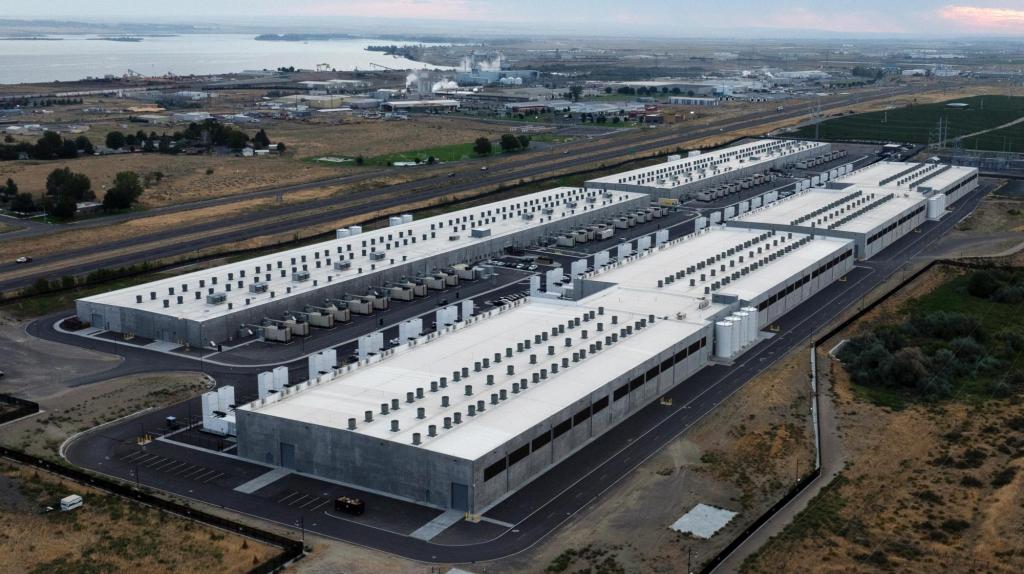For the first time in Florida, utility regulators are mulling how to handle data centers — the energy-guzzling facilities that house computer equipment needed to power artificial intelligence and other tech programs.
Data centers in other parts of the country have already skyrocketed some Americans’ electric bills, as utilities must rapidly build more power plants and transmission lines to compensate for the soaring demand. The issue has come up as part of the complex rate case of Florida Power & Light, giving state utility regulators the chance to set guardrails that could set a precedent for Duke Energy Florida and Tampa Electric.
When Florida Power & Light first filed its request to hike base rates, it asked to collect nearly $10 billion more from customers over the next four years. Embedded in that petition was also how it proposed to address data centers: It would require tech companies to pay a minimum bill representing 90% of their expected energy costs. That way, if a data center’s consumption fell short, residents wouldn’t be required to cover the gap incurred by the utility building up its infrastructure to accommodate the facility.
But consumer advocates have fiercely fought the overall proposal, which is believed to be the largest rate hike request in American history. In response, Florida Power & Light, along with other parties in the case — many of them business interests, like a federation of retail companies, industrial corporations and Walmart — proposed a settlement deal that would lower the overall rate increase to around $7 billion. It would also reduce the minimum bill requirement for data centers to 70% of their expected energy costs.
The utility’s chief executive officer, Armando Pimentel, said during the hearings that having data centers come to Florida could benefit all customers, because costs would be spread out among more users.
“We wanted to provide something that was attractive enough to data centers … so they would take a look at Florida,” he said, adding he didn’t think the change sacrificed customer protections. There are other safeguards in addition to the minimum bill, which the company has said combine to create some of the most robust consumer protections in the country.
James Wilson, an economist and business consultant specializing in data centers, testified Wednesday that the fact Florida Power & Light is proactively proposing data center tariffs is “really a good thing.”
But Wilson told regulators that the company should raise the minimum bill back to 90%, or at least 80%, to mirror what other utilities are doing nationwide. Wilson testified on behalf of the Legislature-appointed consumer advocate, the Office of the Public Counsel, which is opposed to the company’s proposed settlement. Two other groups representing residential customers are also against the deal, saying it caters to big business.
“I think the question you have to ask is, ‘Why?’” Wilson said. “‘Why would prospective data center customers be pushing for 70%?’”
He added that major tech companies like Google, Microsoft, Meta and Amazon work hard to maintain their public image and are unlikely to “push for shifting a lot of the cost and risk of what they’re doing to residential customers,” raising questions about which companies are participating in this case.
Supporting the deal is the Florida Energy for Innovation Association, which its lawyer, D. Bruce May, said represents companies that have signed confidential agreements with Florida Power & Light to explore building data centers in the state. He has not publicly disclosed the names of the companies.
May said that the group supports the 70% minimum bills, adding that they will still “ensure the integrity of our grid and protect the general body of ratepayers from having to subsidize data centers.”
Gov. Ron DeSantis, who appointed all of the utility regulators on the Florida Public Service Commission, recently opined about who should bear the costs of data centers’ resource needs.
“I’m on the side of protecting the hardworking people of this state,” DeSantis said at an event last month. “If someone wants to build a business or build something like that, they’ve got to do it on their own dime. It should not be subsidized by everybody else having to pay up the nose for the necessities of life.”
Lawyers and utility regulators have gathered for grueling, all-day hearings in the Florida Power & Light rate case for the past week and a half. The proceedings resemble a court trial, with company executives providing sworn testimony on the witness stand.
Those hearings concluded Thursday, with regulators expected to make a final decision on the rate hikes around the end of the year.
©2025 Tampa Bay Times. Visit tampabay.com. Distributed by Tribune Content Agency, LLC.

